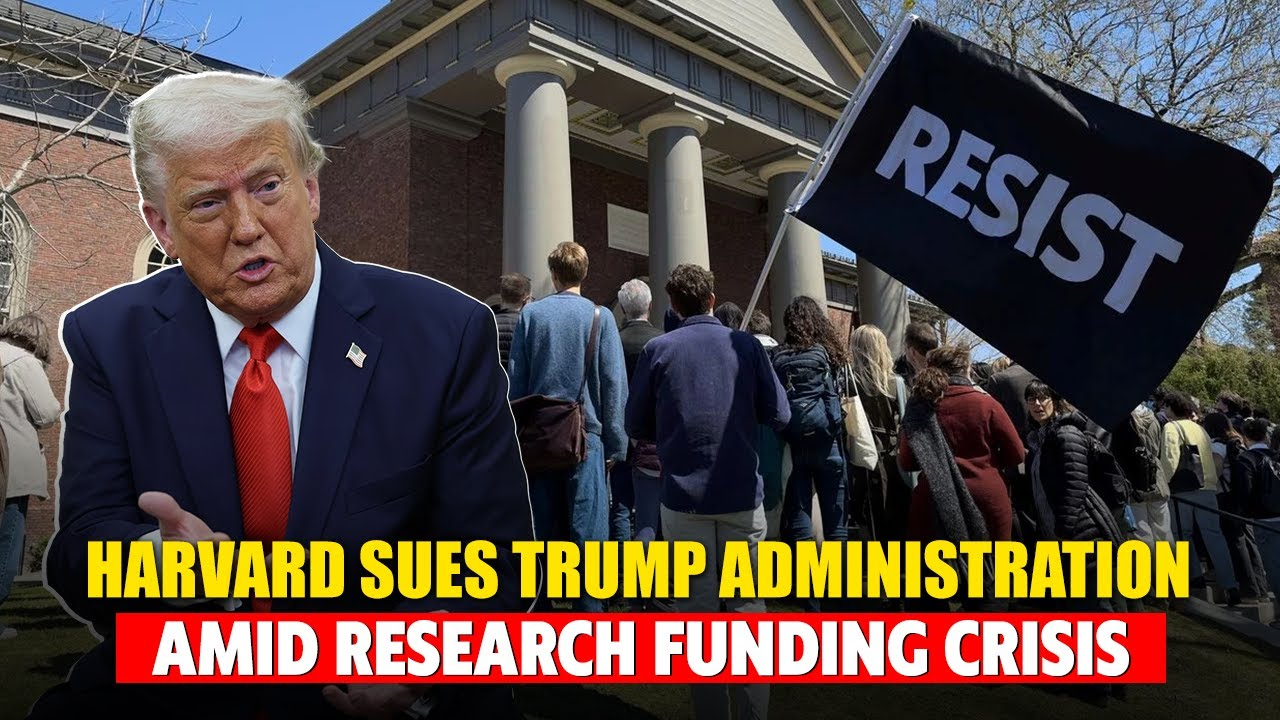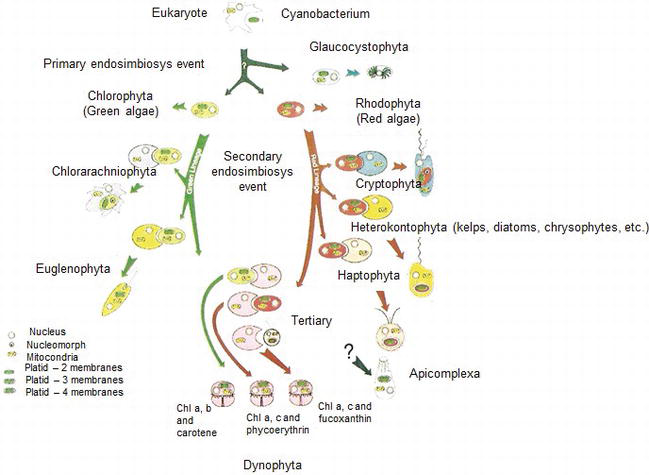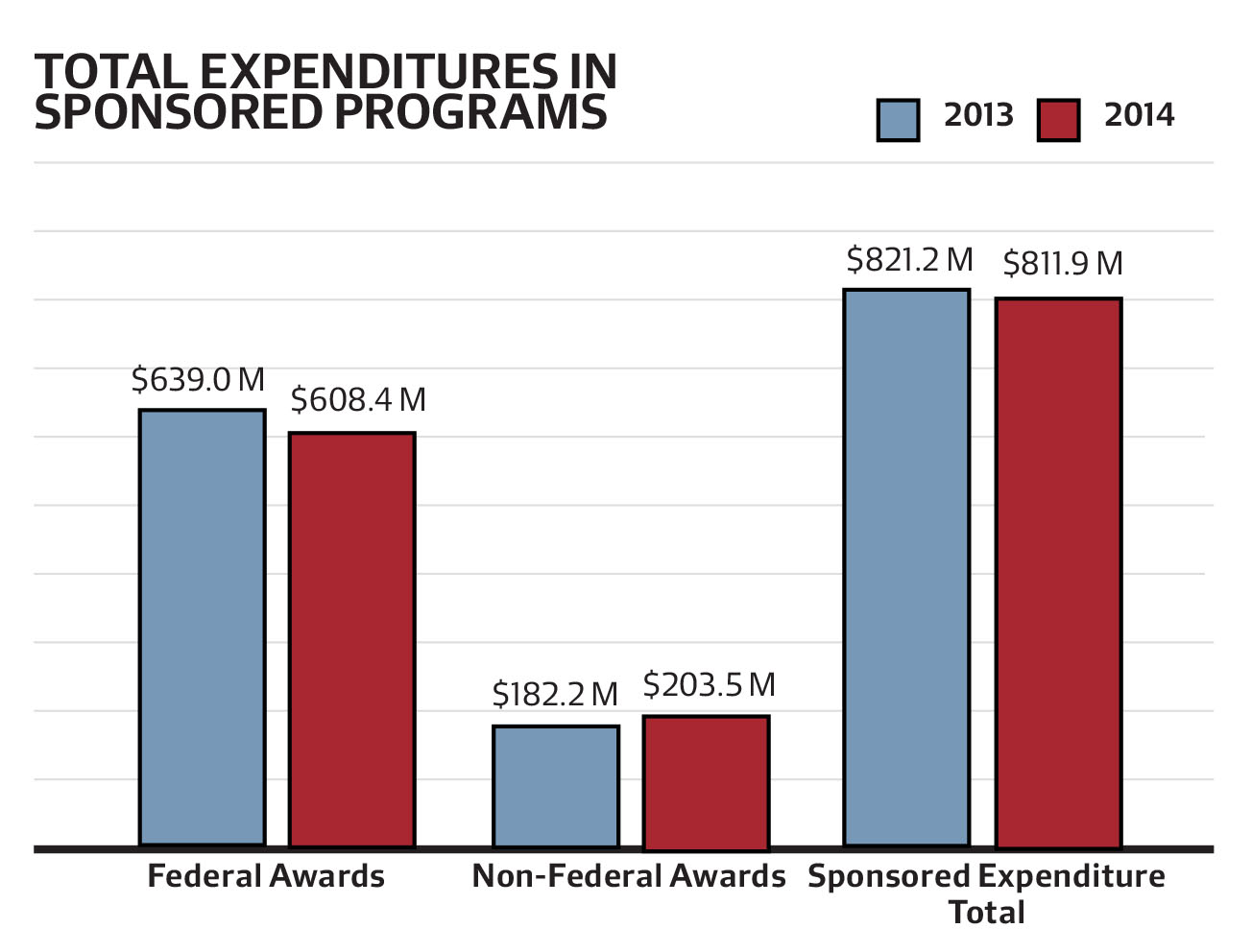The Harvard research funding crisis has caused significant turmoil within the university’s scientific community, especially at the Wyss Institute led by Don Ingber. Hours after Harvard’s rejection of government demands, a stop-work order was issued that directly halted crucial projects, including advanced organ-on-a-chip technology aimed at modeling human tissue responses to radiation damage. This unprecedented governmental freeze on approximately $2.2 billion in research funding has left many talented researchers, students, and postdoctoral fellows scrambling for alternative projects and funding solutions. As the landscape of American innovation faces a looming threat, Ingber and his team are desperate to retain their groundbreaking work and skilled personnel amid growing uncertainty. The future of transformative research at institutions like Harvard now hangs in the balance, posing risks not just to academia but to technological advancement as a whole.
The crisis in research funding at Harvard University highlights a pressing challenge in the intersection of academia and federal policies. Recent actions have prompted significant interruptions in critical scientific work, particularly within the renowned Wyss Institute for Biologically Inspired Engineering, which has been at the forefront of developing innovative organ-on-a-chip technologies. With government funding frozen, many researchers are grappling with the sudden halt of their projects and the potential loss of invaluable human resources. This situation points to a broader struggle for funding in an environment where academic research is pivotal to national progress and technological breakthroughs. The implications of this crisis extend far beyond the university’s walls, raising questions about the future of scientific inquiry in America.
The Implications of the Stop-Work Order
The recent stop-work order issued to Harvard researchers, particularly those at the Wyss Institute such as Don Ingber, signals a significant disruption in ongoing scientific projects. This order not only halts critical research but raises questions about the sustainability of innovation within American institutions. The immediate consequence is a scramble to protect talented researchers and preserve progress in projects that utilize cutting-edge organ-on-a-chip technology. The abrupt cessation of work affects not only ongoing experiments but also the personal and professional lives of students and postdocs who had invested considerable time and effort into these projects.
The situation is particularly alarming considering the potential loss of research advancements that had garnered substantial funding from federal sources. Ingber emphasized the risk of losing not just data but also crucial advancements related to organ-on-a-chip models that could mitigate damage from radiation exposure. With the looming consequences of halted research, the order threatens the framework that has historically allowed American science to thrive — fostering innovation through a symbiotic relationship between government funding and academic prowess.
Harvard Research Funding Crisis: Causes and Consequences
The Harvard research funding crisis resulting from the Trump administration’s recent demands illustrates a complex interplay between governance and academic freedom. After Harvard rejected these demands, which included intrusive governance measures and operational audits, the government responded with a drastic funding freeze estimated at $2.2 billion. This has led not only to funding shortages but also to a chilling effect on the morale of researchers and potential hires from abroad. With many scientists feeling uneasy about their job security, this situation may discourage top talent from seeking positions within U.S. institutions, thus hindering future innovation.
Moreover, the implications of this funding crisis extend beyond just Harvard or the Wyss Institute. It raises alarms across the academic landscape regarding the stability of government funding for crucial scientific research. Ingber’s testimony suggests that such funding is the lifeblood of America’s innovation ecosystem, which relies on a strong partnership between academia and government. As researchers navigate these turbulent waters, they face stark choices that could ultimately influence the future of American scientific advancement.
The Role of Organ-on-a-Chip Technology in Modern Research
Organ-on-a-chip technology pioneered at the Wyss Institute represents a revolutionary approach to biomedical research, offering a platform for real-time modeling of human organ functions under various conditions, including extreme environments like microgravity. Ingber’s work on these chips has the potential to significantly advance our understanding of how human systems respond to radiation, making it applicable not only for astronauts on long space missions but also for patients undergoing radiation therapy. Halting this research due to funding cuts could set back years of progress in both space health and cancer treatments.
Additionally, the versatility of organ-on-a-chip technology positions it as a critical tool for disaster preparedness and public health. By simulating exposure effects related to nuclear incidents, this research provides invaluable insights into managing health risks effectively. The urgency of these projects cannot be overstated, especially as discussions ramp up around increasing nuclear power production. The interruption of such vital research could have cascading effects on public health policies and the future viability of space exploration.
Impact on Scientific Talent and Retention
With the recent stop-work order and its subsequent implications, there has been a noticeable shift in the landscape of scientific employment, particularly for those from outside the U.S. As reported by Ingber, international candidates who once viewed positions at esteemed institutions like Harvard as highly desirable are now retreating in fear due to perceived instability and safety concerns. The loss of potential researchers not only impacts specific projects but can also have long-term repercussions for America’s status as a global leader in scientific research and innovation.
The current crisis puts immense pressure on institutions to create supportive and secure environments for their researchers. Ingber echoed these sentiments, stressing the need for leaders in academia to advocate fiercely for their teams and prioritize their care amidst uncertainties. If these conditions persist, it may lead to a downward spiral where the best minds choose alternative paths, stunting the growth and development needed for future scientific breakthroughs.
The Future of Research Policy and Government Relations
The ongoing conflict between Harvard and the federal government highlights the delicate relationship between research institutions and government entities, raising questions about the future of scientific collaboration and funding. As Don Ingber pointed out, the research community had thrived under a pact that ensured government support for innovative projects. However, the recent stop-work order suggests a shift toward increased governmental control over academic research, which could stifle creativity and discourage critical developments necessary for societal advancement.
Going forward, fostering healthy dialogue between scientists and policymakers will be paramount. Institutions like the Wyss Institute must engage actively with government representatives to advocate for protections that ensure funding flows into innovative research avenues. By emphasizing the importance of research not just in economic terms, but also in its potential to tackle pressing global challenges, a more conducive environment for scientific inquiry can be established, one that respects the autonomy of academic research while recognizing its mutual benefits with government support.
The Broader Impact of Stalling Scientific Progress
The implications of halted scientific progress due to the funding crisis extend far beyond individual projects. As noted by Ingber, American innovation has historically been linked to university research, which fuels technological advancements that drive the economy. The freeze on funding, especially for pioneering projects involving organ-on-a-chip technology, stifles the potential for breakthroughs that could have far-reaching impacts on health care, environmental safety, and space exploration.
Furthermore, this stagnation creates a ripple effect across various sectors reliant on scientific advancements. For instance, as researchers are forced to halt experiments and lay off talented staff, industries such as biotechnology and pharmaceuticals may face setbacks in drug discovery and development. Consequently, the overall progression of knowledge-based economies could slow, limiting the United States’ competitiveness in the global market and undermining the country’s long-standing leadership role in science and technology.
Navigating the Challenges of Future Scientific Research
As Harvard navigates its current challenges, there are critical lessons to be drawn about the resilience required in scientific research. The uncertainty introduced by the stop-work order emphasizes the importance of adaptability in research planning and funding strategies. Institutions must cultivate robust contingency plans to help mitigate the impacts of sudden funding disruptions, ensuring that pivotal research can continue even under adverse circumstances. This proactive approach will be essential as the dynamic nature of government funding continues to evolve.
Furthermore, fostering a strong culture of collaboration within the scientific community will be crucial in overcoming these challenges. By sharing resources, knowledge, and advocacy efforts, research institutions can create a united front in addressing potential funding crises. This collaborative spirit, coupled with ongoing efforts to engage policymakers in understanding the importance of scientific research, can help pave the way toward a more stable and supportive funding environment.
Lessons Learned: The Future of Academic Research
The current funding crisis at Harvard serves as a crucial touchpoint for redefining the relationship between academic research and governmental support in an increasingly contentious political climate. Lessons learned from this experience may guide future research policies, pushing for a more stable and less intrusive approach to funding that allows institutions to thrive without governmental overreach. The need for a delicate balance between accountability and academic freedom has never been clearer.
As researchers and institutions critically assess the impacts of the stop-work order, there may be an opportunity to advocate for lasting reforms that prioritize scientific integrity and independence. By reinforcing the value of academic inquiry in driving innovation and technological advancement, the research community can work together to secure a future where funding supports rather than hinders the vital work of scientists across the nation.
Protecting Innovation Amidst Uncertainties
In times of uncertainty, protecting innovation becomes paramount. Researchers and institutions need to harness their collective strength to advocate for policies that safeguard scientific inquiry and financing. Ingber’s mention of preserving jobs and maintaining project continuity amid the funding crisis underscores the need for robust support systems that prioritize human capital in research endeavors. Ensuring that researchers have access to resources and internal funding can mitigate disruption and maintain momentum.
Moreover, open lines of communication between researchers, administrators, and external funding bodies can foster a culture of transparency and collaboration. Engaging with stakeholders to address concerns surrounding funding stability can also cultivate trust and encourage investments in long-term projects. By prioritizing strategic partnerships and proactive approaches to funding challenges, the scientific community can ensure that innovation continues to thrive, even in the face of adversity.
Frequently Asked Questions
What is the Harvard research funding crisis and how does it relate to the stop-work order?
The Harvard research funding crisis refers to the recent freeze of approximately $2.2 billion in federal research funding to the University, following the government’s demands for changes in governance and oversight. This led to stop-work orders on critical projects, including organ-on-a-chip technology, impacting many researchers and their ongoing studies.
How has Don Ingber responded to the Harvard research funding crisis?
Don Ingber, the director of the Wyss Institute, has been actively managing the fallout from the Harvard research funding crisis. He has prioritized safeguarding his team and their projects, exploring alternative funding options, and addressing the immediate concerns of researchers affected by the stop-work orders on his organ-on-a-chip projects.
What impact does the Harvard research funding crisis have on organ-on-a-chip technology?
The Harvard research funding crisis significantly affects organ-on-a-chip technology projects, particularly those under Don Ingber. With the stop-work order halting research, there is concern over the potential loss of crucial data and compromised progress in studying radiation damage and microgravity effects on human tissues.
Are there any legal actions related to the Harvard research funding crisis?
Yes, following the stop-work orders and funding freeze, Harvard has filed a lawsuit against the government, claiming the demands imposed were unconstitutional and an overreach. The university is seeking restoration of funding to resume essential research projects affected by the crisis.
How does the Harvard research funding crisis threaten future innovation?
The Harvard research funding crisis threatens future innovation as it halts groundbreaking projects, such as organ-on-a-chip technology, which contribute to advancements in health and space exploration. This suspension of funding and the resulting instability may deter top-tier talent from pursuing careers in research at Harvard and potentially stifle the broader American innovation engine.
What should researchers do during the Harvard research funding crisis?
During the Harvard research funding crisis, researchers are encouraged to look into internal funding opportunities, collaborate on alternative projects, and remain connected with their supervisors for guidance. Staying informed about the lawsuit’s progress can also help in navigating potential changes and planning for future research directions.
| Key Points | Details |
|---|---|
| Funding Freeze | Harvard faced a $2.2 billion funding freeze from the U.S. government following a rejection of administrative demands. |
| Project Impact | The funding halt affected crucial projects, including organ-on-a-chip research aimed at modeling radiation damage and impacts on astronauts. |
| Legal Action | Harvard filed a lawsuit against the government, calling the funding demands unconstitutional and requesting restoration of funding. |
| Research Importance | The organ-on-a-chip technology is pivotal for understanding radiation effects and the safety of astronauts for long space missions. |
| Impact on Researchers | Researchers are faced with uncertainty, layoffs, and a loss of progress on their projects due to the funding crisis. |
| International Recruitment | The uncertainty has deterred international researchers from accepting positions in the U.S., potentially harming innovation. |
| Historical Context | The situation has raised concerns about the future of America’s innovation engine that relies on government-academic partnerships. |
Summary
The Harvard research funding crisis has raised significant alarm within the academic community. With the recent $2.2 billion funding freeze imposed by the U.S. government, Harvard’s ability to continue groundbreaking research is severely jeopardized. Key projects, such as the organ-on-a-chip technology aimed at evaluating radiation damage, are at a standstill, leaving researchers and their teams in uncertainty and fear of layoffs. As a result of this funding crisis, the university has taken legal action, arguing that the government’s demands are unconstitutional. Furthermore, this situation threatens to dismantle America’s innovative edge, which has historically thrived on collaboration between government funding and academic research. The implications of this crisis could hinder the recruitment of top global talent and stifle scientific advancements, posing a serious risk to the nation’s future in research and technology.



